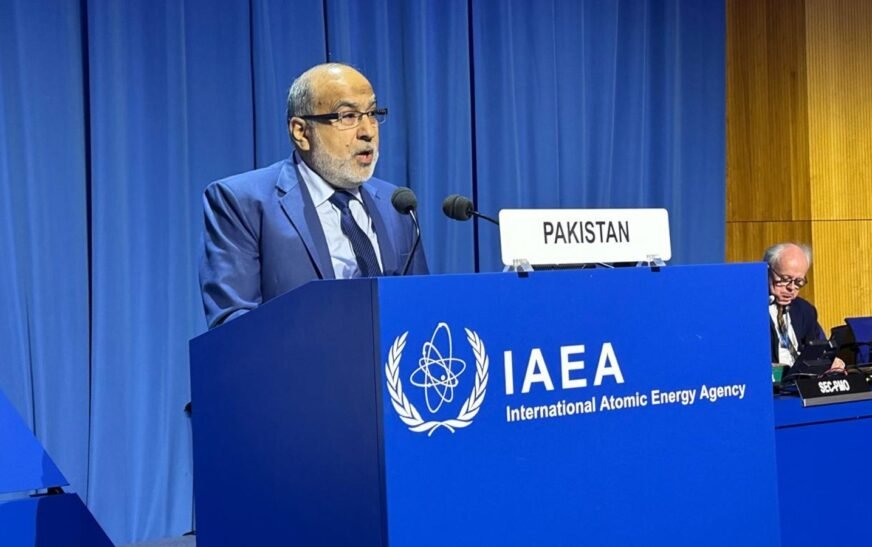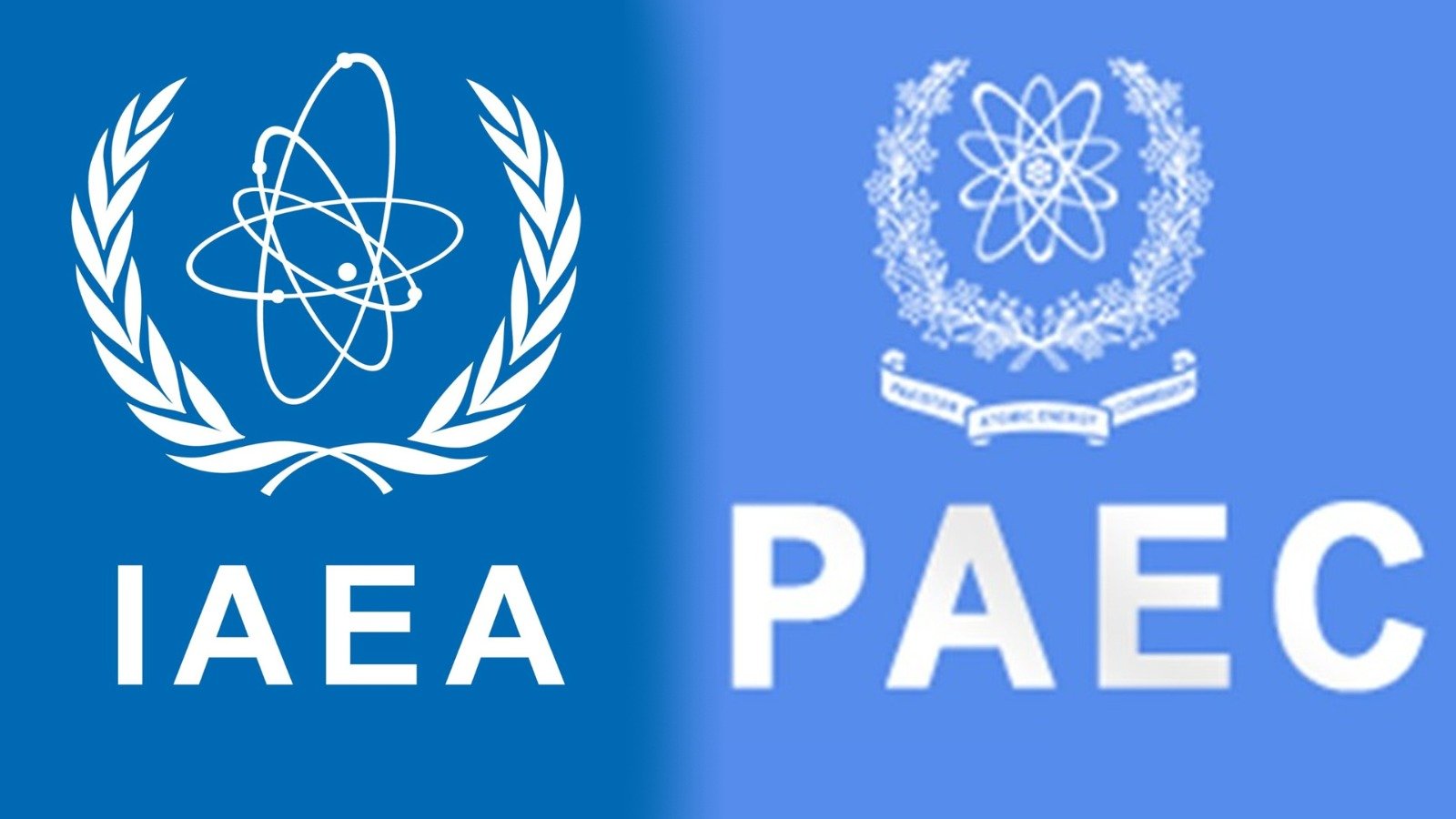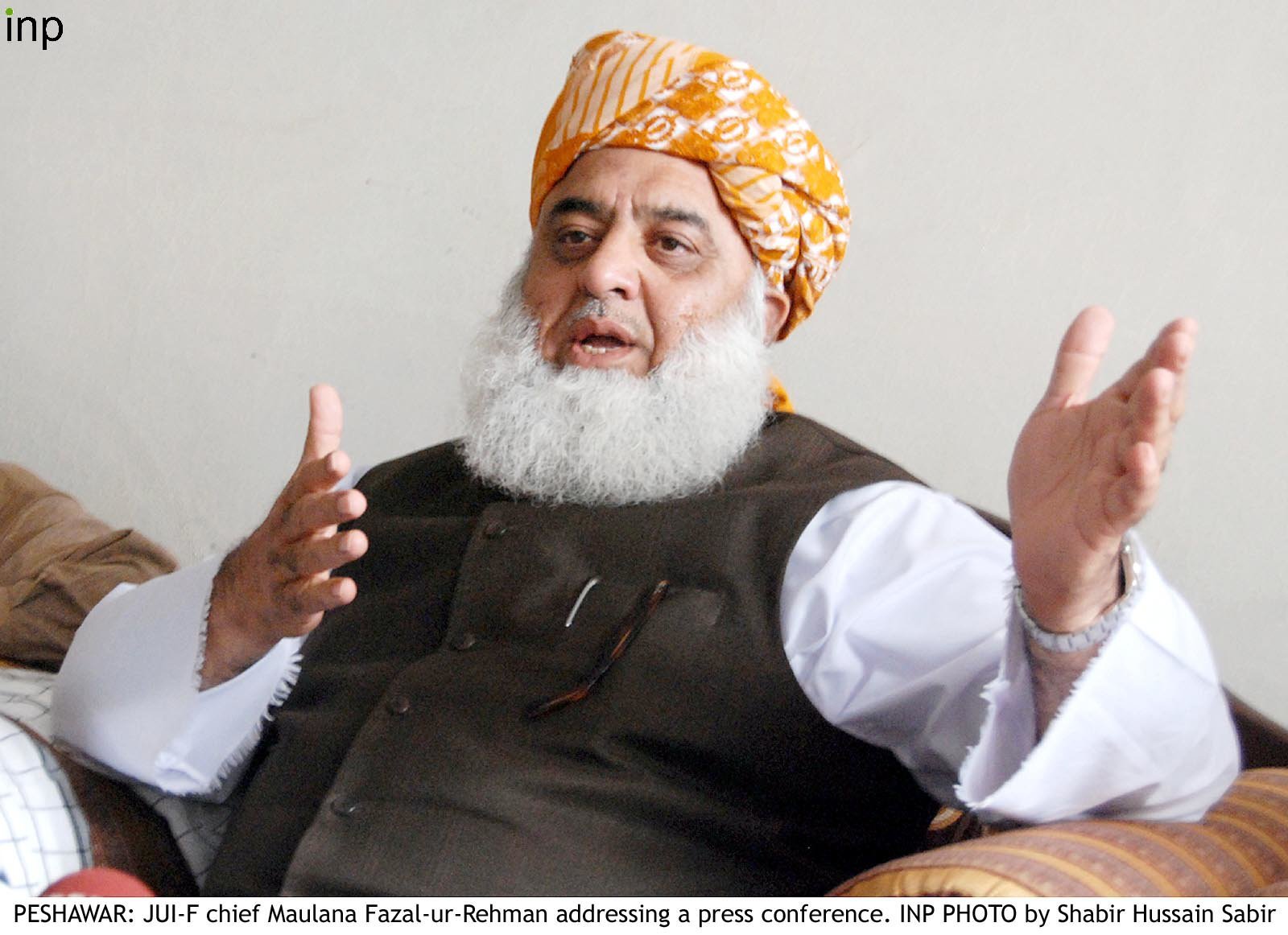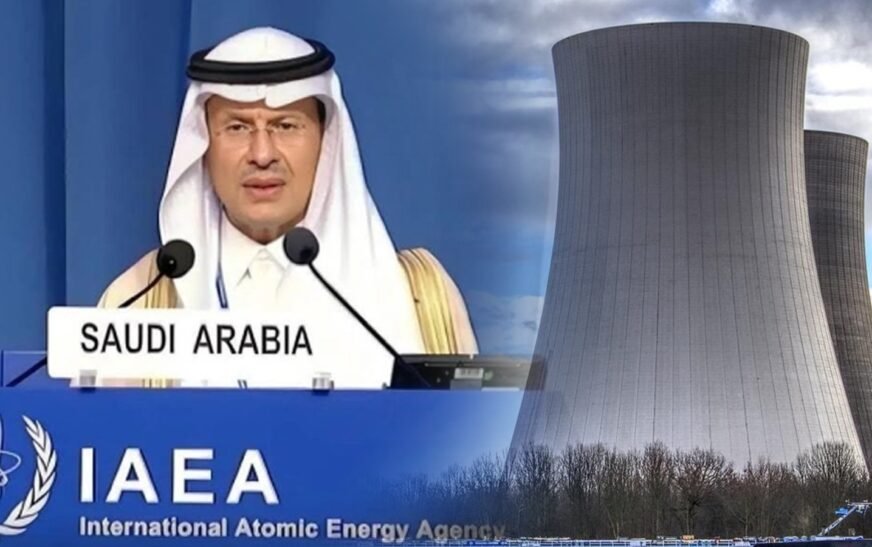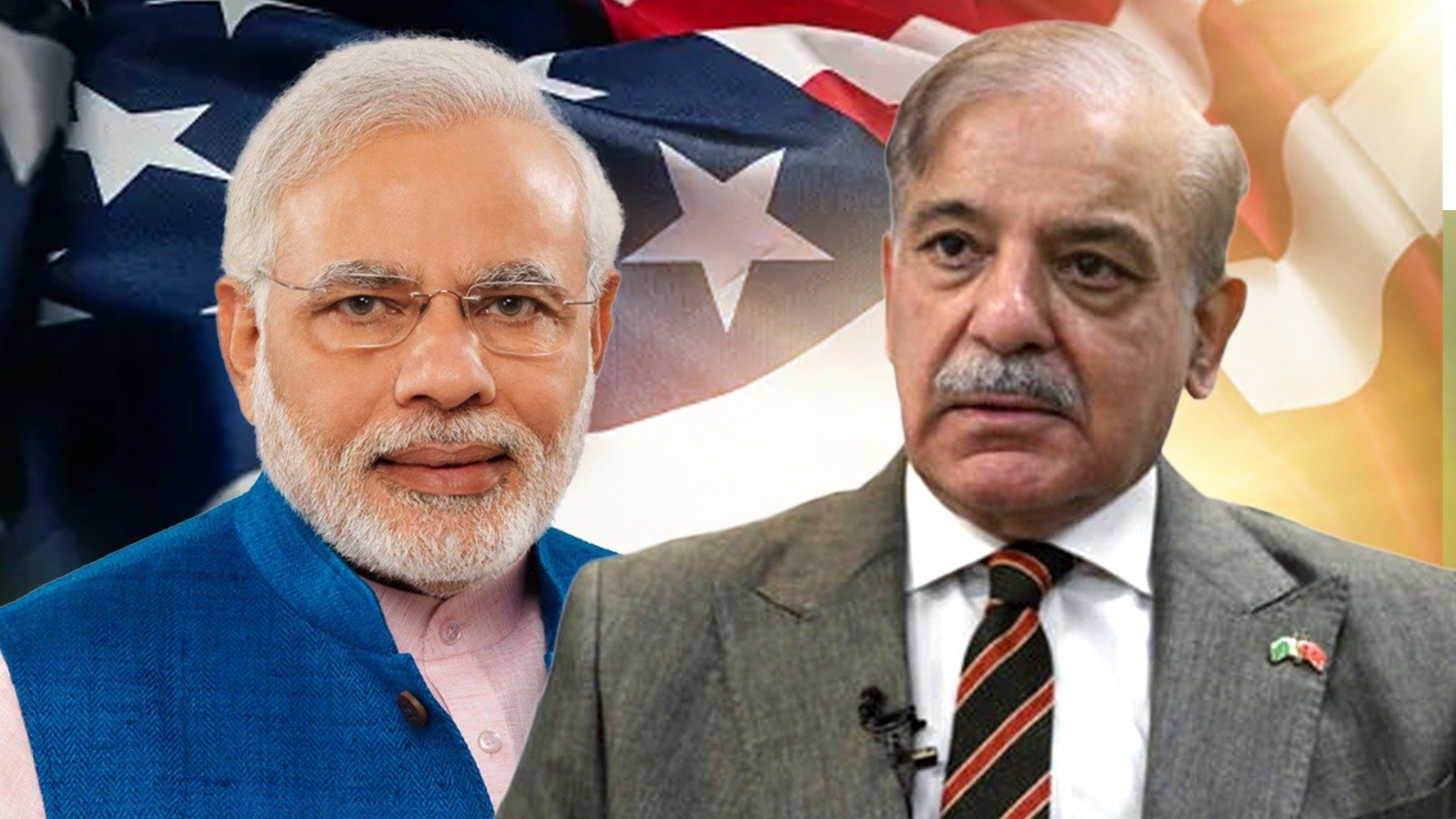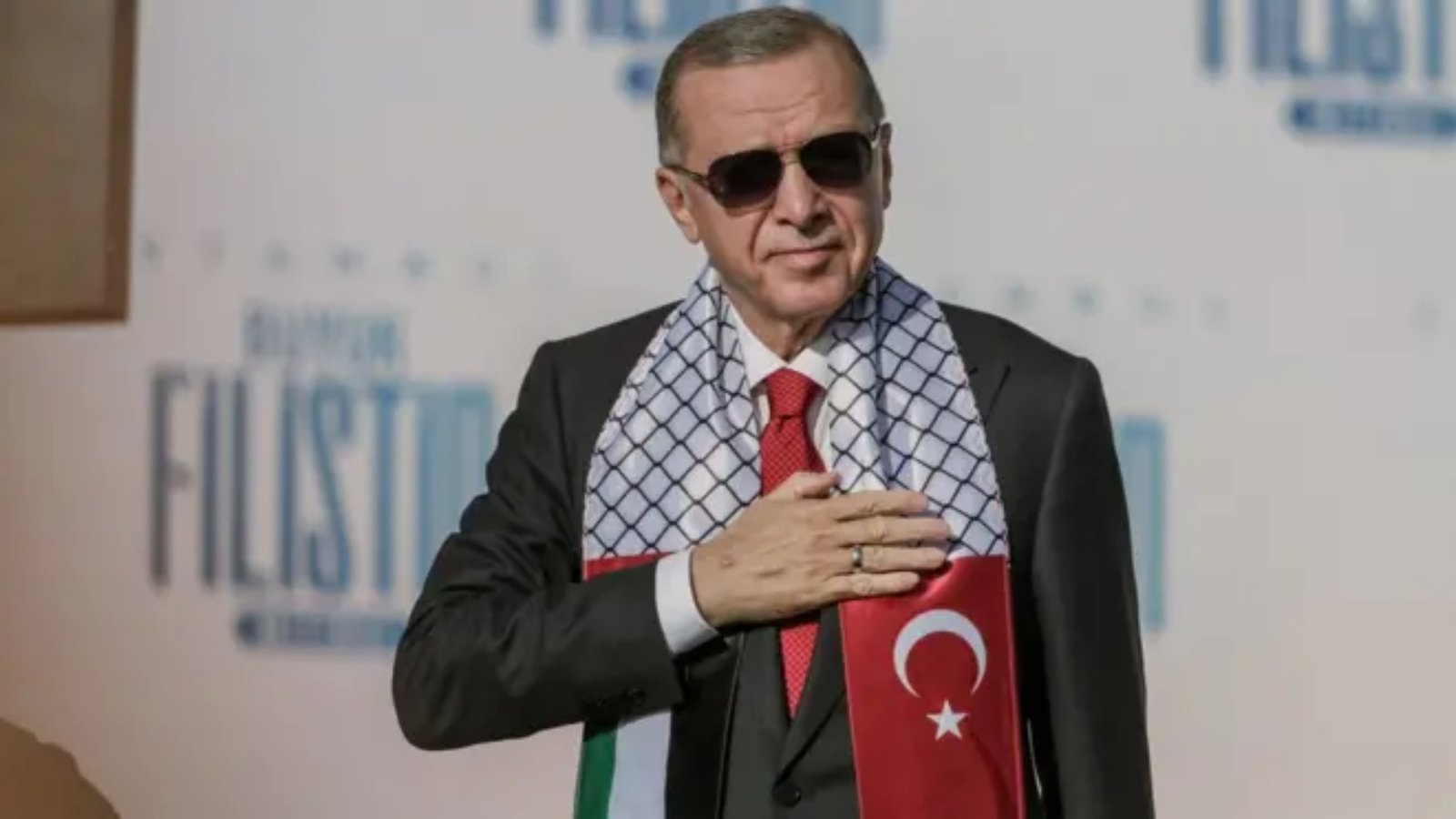Chairman Pakistan Atomic Energy Commission (PAEC) Dr Raja Ali Raza Anwar said on Monday that nuclear technology holds the key to resolve all climate change related issues that the world is facing today.
He mentioned that besides offering a practicable solution to resolving issues faced in the health sector especially in diagnosis and treatment of cancer, environmental degradation, water scarcity and food safety.
He said this while delivering Pakistan’s National Statement at the Plenary Session of the 68th General Conference (GC) at the International Atomic Energy Agency (IAEA) Headquarters in Vienna.
Chairman PAEC said, “The IAEA’s work is taking on greater significance as the world grapples with challenges like climate change, water scarcity, energy demands, and environmental degradation. The Agency’s initiatives – such as Atoms 4 Food, Rays of Hope, and NUTEC Plastic, underscore the critical role of nuclear science in fostering a safer, healthier, and more sustainable future.”
“Extreme weather patterns caused by climate change and global warming are severely impacting different parts of the world, with Pakistan ranking among the top 10 most vulnerable countries despite its low contribution to global emissions. The unprecedented rise in temperature has left our nation struggling to rebuild and recover from calamities like floods, water and food shortages,” he added.
Dr Anwar further elaborated that Nuclear energy offered a promising solution as a clean and sustainable energy source and the Agency’s efforts to support countries through its clean energy initiative were appreciable.
Highlighting PAEC’s progress in the field of peaceful uses of nuclear technology, especially in nuclear power sector, Chairman said: “Currently, Pakistan is operating six nuclear power plants with a combined capacity of 3,530 MW contributing 17 per cent of our grid’s electricity and accounting for 30 per cent of our low-carbon generation. Nuclear power in Pakistan has effectively evaded over 100 million tons of GHG emissions by replacing fossil fuel-based generation. Looking ahead, we are in the final stages of planning to start construction of another nuclear power plant, expected to be commissioned by 2030. Our 100 reactor-years experience in operating a safe and secure nuclear power program speaks volumes about our competence and commitment.”
Pakistan Atomic Energy Commission has placed a strong emphasis on the use of nuclear technology to provide top notch health facilities to the citizens of Pakistan. With 19 cancer hospitals serving under its wing, Over 1.0 million diagnostics and therapeutic procedures are carried out annually in PAEC cancer hospitals. In recognition of Pakistan’s steadfast commitment, the Nuclear Medicine, Oncology, and Radiotherapy Institute (NORI), was designated as IAEA Anchor Centre under the initiative “Rays of Hope”. I am pleased to share that the first batch of trainees have received training at NORI under this initiative, Chairman PAEC added.
PAEC is utilising nuclear technology to ensure food security and safety by leveraging its four agriculture and biotechnology centers.
Pakistan’s Nuclear Institute for Agriculture and Biology (NIAB) which is an IAEA Collaborating Center takes pride in its role as the Zoonotic Disease Integrated Action (ZODIAC) national laboratory.
Last year, NIAB successfully organised a regional meeting on food safety. IAEA Deputy Director General (DDG) Technical Cooperation (TC) graced the occasion as chief guest and applauded Pakistan’s contributions in the field, Dr Raja Ali Raza further said.
He added, “As we work closely with the Agency on water resource management, our prestigious institute for nuclear science and technology, PINSTECH, is currently in the process of becoming an IAEA Collaborating Center focusing on water resource management. Pakistan looks forward to engaging in the Agency’s new initiative of Global Water Analysis Laboratory (GloWAL) Network.”
Commenting on Nuclear Security, PAEC Chairman said it is a state responsibility and it receives the highest level of attention in Pakistan in accordance with our domestic and international obligations. The National Institute of Safety and Security (NISAS) in Pakistan is the designated IAEA Collaborating Centre for education, training and technical support in the areas of nuclear & radiation safety and nuclear security. NISAS is playing a pivotal role in offering state of the art training opportunities for officials from national and international stakeholders.
He added that Pakistan Centre of Excellence of Nuclear Security (PCENS) is a highly esteemed national institution that has grown into a prominent regional and international hub, offering exceptional nuclear security training.
Practical Arrangement signed between IAEA and PCENS in May 2024 would further increase IAEA’s training activities for Nuclear Security in the region, he hoped.
He also appreciated the role of Pakistan Nuclear Regulatory Authority (PNRA) as an independent national regulatory body on nuclear.
Dr Raja Ali Raza Anwar also highlighted Pakistan’s dedication towards empowering women in the nuclear field through implementing the Marie Curie Fellowship. As a Collaborating Center, Pakistan Institute of Engineering and Applied Sciences (PIEAS) is playing a vital role in offering capacity building in nuclear education at national and international levels.
Pakistan has consistently met its obligations to the Agency by fully adhering to safeguard requirements, he said.
“We look forward to strengthening and continuing this cooperation to work towards the shared objective of socio-economic development through the application of nuclear science and technology,” he concluded.
On this occasion he also congratulated H.E. Ambassador HAM Sang Wook and other officers of the Committee on their election at the 68th Session of the IAEA GC and assured of Pakistan’s full support and cooperation.


